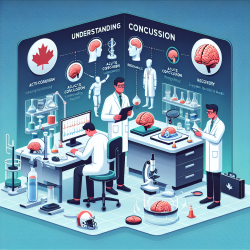Introduction
In the rapidly evolving field of healthcare, the integration of digital resources has significantly transformed the way practitioners and patients interact. The research article "Googling for Neurological Disorders: From Seeking Health-Related Information to Patient Empowerment, Advocacy, and Open, Public Self-Disclosure in the Neurology 2.0 Era" highlights the pivotal role of the internet in reshaping patient-practitioner dynamics. As professionals in speech language pathology and related fields, understanding and leveraging these digital tools can enhance patient outcomes and foster a more informed and empowered patient community.
The Shift to Patient-Centered Care
The internet has catalyzed a shift from a traditional paternalistic model of healthcare to a more patient-centered approach. Patients are no longer passive recipients of information; they are active participants in their healthcare journey. This shift is particularly relevant in the management of neurological disorders, where access to comprehensive and accurate information can significantly impact treatment outcomes.
Leveraging Online Health Communities
Online health communities, such as ParkinsonNet, have demonstrated the power of digital networks in delivering patient-centered care. These platforms facilitate collaboration among healthcare professionals and provide patients with access to a wealth of information and support. For practitioners, engaging with these communities can enhance their understanding of patient needs and improve the quality of care provided.
Challenges and Opportunities
While the internet offers unprecedented access to information, it also presents challenges in terms of information quality and reliability. Practitioners must guide patients towards reputable sources and help them navigate the vast array of available information. This involves staying informed about the latest digital resources and being proactive in recommending high-quality websites to patients.
Enhancing Practitioner Skills
Practitioners can improve their skills by:
- Participating in online health communities to stay updated on the latest developments in neurological care.
- Engaging in continuous education about digital health tools and their applications in patient care.
- Collaborating with patients to identify reliable sources of information and addressing any misconceptions they may have.
Encouraging Further Research
The digital landscape is constantly evolving, and further research is essential to understand its full potential in healthcare. Practitioners are encouraged to contribute to this body of knowledge by conducting studies on the impact of digital resources on patient outcomes and sharing their findings with the broader medical community.
Conclusion
As we continue to embrace the digital age, the role of practitioners in guiding and empowering patients becomes increasingly important. By leveraging digital resources effectively, practitioners can enhance patient care, improve outcomes, and foster a more informed and engaged patient population.
To read the original research paper, please follow this link: Googling for Neurological Disorders: From Seeking Health-Related Information to Patient Empowerment, Advocacy, and Open, Public Self-Disclosure in the Neurology 2.0 Era.










